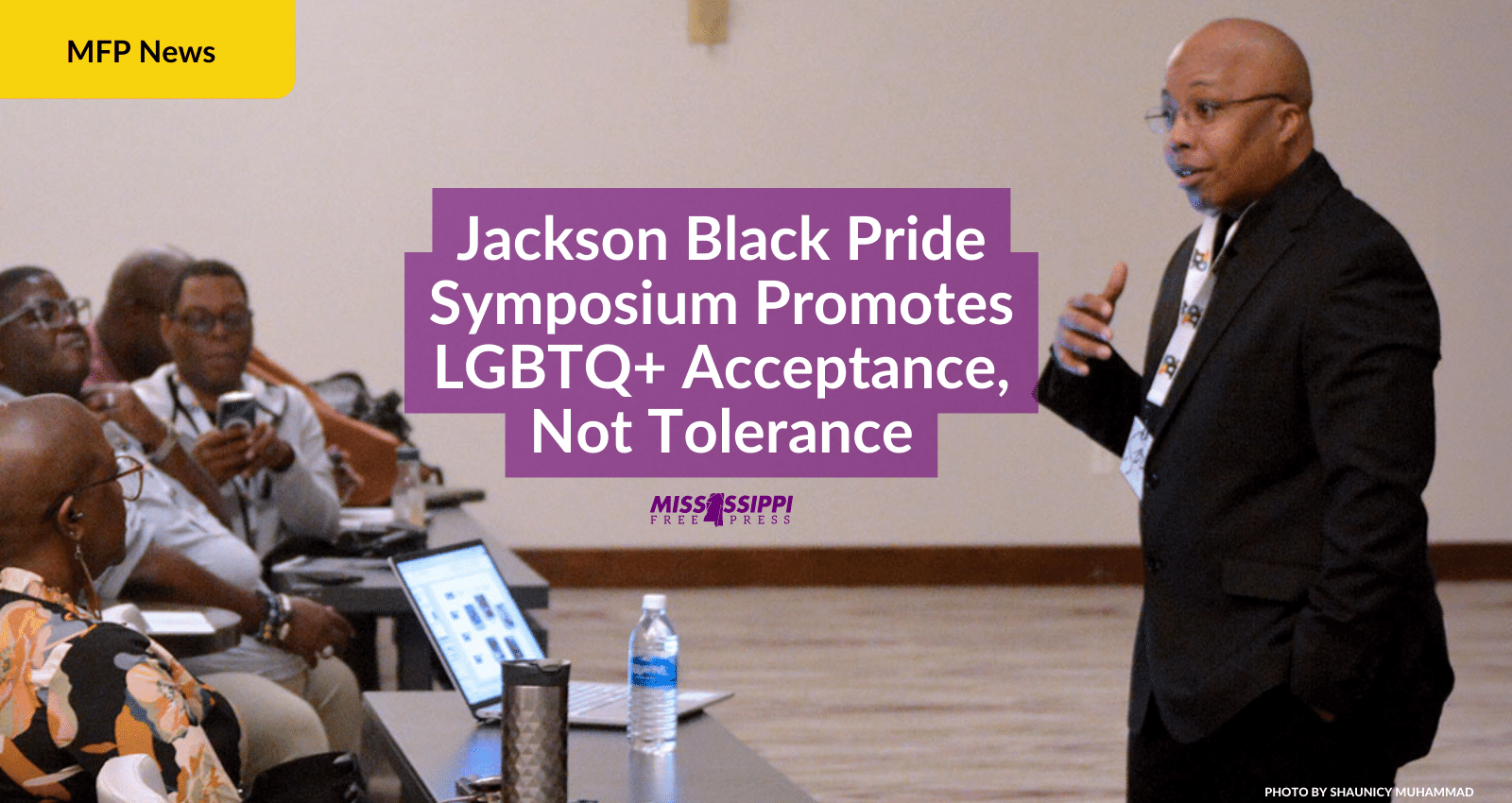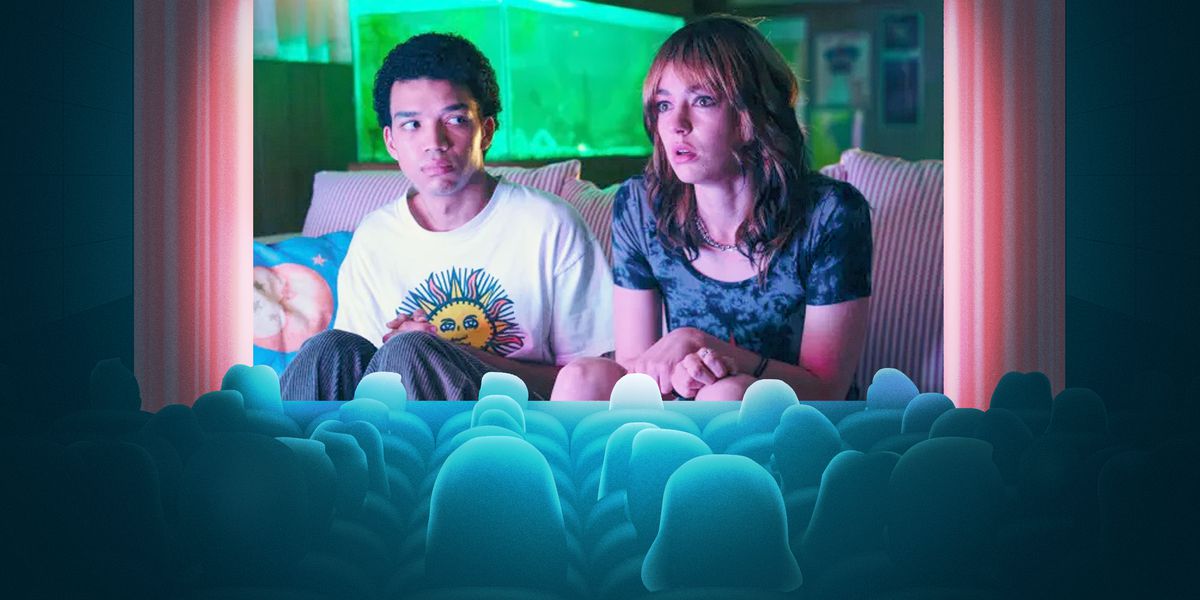
JACKSON, Miss.—When Naomi Green reflects on her time as a student at Jackson State University, she says she wishes she had observed more proactive conversations on campus about HIV/AIDS, consent, bodily autonomy and sexual health.
She shared those reflections with the audience at the 17th Annual Jackson Black Pride health symposium on Nov. 17. Green was one of the five panelists discussing allyship with the trans community, self-advocacy and self-love.
“HIV was not talked about on campus (when I was a student). Sex was not talked about. In the South, which is where most HBCUs are: Sex is still taboo. But we need to normalize those conversations,” she said. “Because there’s still so much taboo that exists around sex, we’re missing out on opportunities to make sure that our community is educated about sexual health and choice.”

Today Green works with the organization Black Women in Public Health to educate and engage Black cisgender and transgender women at HBCUs and other predominantly Black schools about sexual health and HIV/AIDS, which has a particularly devastating affect on Black women.
The U.S. Centers for Disease Control said in 2019 that the southern region of the United States is now the epicenter of the HIV/AIDs epidemic. “Eight of the 10 states with the highest rates of new HIV diagnoses are in the South, as are nine of the 10 metropolitan statistical areas with the highest rates,” the HIV in the Southern United States report said. Black women lead diagnoses of new HIV infection rates among all women in America.
“Knowledge is power; you can’t have knowledge about things if it’s not talked about,” Green said. “Education leads to understanding, understanding leads to acceptance and acceptance leads to change. But it all starts with being able to educate individuals with the right information.”
‘Equal Rights For All’
My Brother’s Keeper hosted Friday’s health summit as part of a series of events commemorating Jackson Black Pride Week. The events began on Nov. 15, with a private screening of the movie “Rustin”; the film chronicles the legacy of Bayard Rustin, a social and gay-rights activist and advisor to Martin Luther King Jr. The theme of this year’s health summit was “One Team, One Love: Embracing Community and Culture.”
“My Brother’s Keeper is about bridging the gap of health disparities for Black and brown people and LGBTQ+ people,” Media and Creative Services Director Brandon Holmes said. “We try to be a voice for those who don’t have a voice themselves. We challenge policy that does not help us. We basically just want equal rights for all.”

The organization runs the Open Arms Healthcare Center and produces skits and roundtable discussions to help remove stigmas from topics that some may find taboo. He said that while the Open Arms clinic is open to all, its leaders prioritize creating safe spaces for LGBTQ+ people who are apprehensive about receiving services as well as educating family members on what their loved ones are going through.
“Everybody’s not going to understand; some people just don’t want to understand,” Holmes said. “But you still gotta love. They’re still people.” Understanding was a common thread among the conversations that occurred during this year’s event.
In an interview with the Mississippi Free Press on Nov. 20, Naomi Green also expressed a desire for the Black community to be more vocal in their support of transgender people, making a connection between Black people’s fight for civil rights in America and the present-day issues transgender people face.
“In some ways today we’re still fighting for rights as Black people. Yet, oftentimes, we’re inflicting the same trauma onto other communities like the LGBTQ+ community,” Green said.
“As a transgender woman, it sometimes feels like I’m still living in the 1920s and 1930s when I hear about trans people who were killed just for walking outside, just for walking down the wrong street or for talking to a man who didn’t know they were trans, and he found out, and they end up dead. I’m sure it must have been the same way in the 1920s as a Black person,” she said.

The murders of transgender women have sparked outrage around the country and heightened fears of violence for members of the LGBTQ+ community in recent years.
In 2022, law enforcement reported the murders of 40 transgender or non-gender-conforming people in the United States. That included Kenyatta “Kesha” Webster, who was found dead in Jackson on March 26, 2022, and Shawmaynè Giselle Marie, who was killed in Gulfport on June 21, 2022.
Jimmie “Jay” Lee, a 20-year-old native of Jackson and graduate of the University of Mississippi was last seen in Oxford on July 8, 2022. Later that month, a grand jury indicted Sheldon Timothy Herrington Jr. on capital-murder charges in Lee’s death. His trial is set for Oct. 15, 2024. Tracey Williams, an Oxford community advocate and friend of Lee’s, told Fox13 in Memphis that he was “loveable, fashionable and a great dancer.” Investigators have not yet found Lee’s body.
‘I Am 100% Christian and 100% A Gay Man’
The health symposium on Nov. 17 also featured sessions on financial wellness, addressing trauma, being an advocate for the LGBTQ+ community and homeowner rights for those who identify as LGBTQ+. Del’Rio Cole hosted a session on trauma in the LGBTQ+ community and echoed some of Naomi Green’s sentiments that many, particularly among some Christian communities, often push people who identify as LGBTQ+ to the margins of society.
Cole said he believes events like the Jackson Black Pride health summit are critical for fostering conversations that can narrow the gap of misunderstanding between those who identify as LGBTQ+ and those who do not.
“The (LGBTQ+) community does not want to be tolerated, they want to be accepted,” Cole told the Mississippi Free Press on Nov. 20. “They don’t want to be ostracized or feel othered. They want to feel a part of the Black community and society in general.”

Today, Cole is a therapist, but he was formerly a police officer and preacher. While he said both aspects of him once struggled to coexist, he now refuses to separate his identity as a Christian from his reality of being a gay man.
He said that during his time as a student at Dillard University in New Orleans, he began questioning the ideology under which he was raised.
“I started preaching when I was 14. By the time I turned 22, I was at a place where I had been at this institution of higher learning and started to think independently for myself, instead of allowing men to tell me what I should be thinking,” Cole said. “And I started to question certain things about how the doctrine of the church aligned with the character of God. It made me question everything at that point.”
“I’m not diminishing any part of myself. I am 100% Christian and 100% a gay man. At some point, my spirituality and sexuality married one another. I don’t feel any condemnation. I don’t feel like God has turned his back on me,” he said.

Ultimately, Cole said that regardless of race, more conversations are needed across lines that would allow people to get a better understanding of each other—even if they aren’t compelled to change their core beliefs.
“Because we don’t talk across sexual orientation lines, gender lines, racial lines, we’re not having conversations so that we can build rapport with one another and build relationships with one another. We fear the unknown. We fear what’s different from us,” Cole said. “We may not agree, but we have to find a way to coexist. Because guess what: The church is not going anywhere, and gay people are not going anywhere.”



